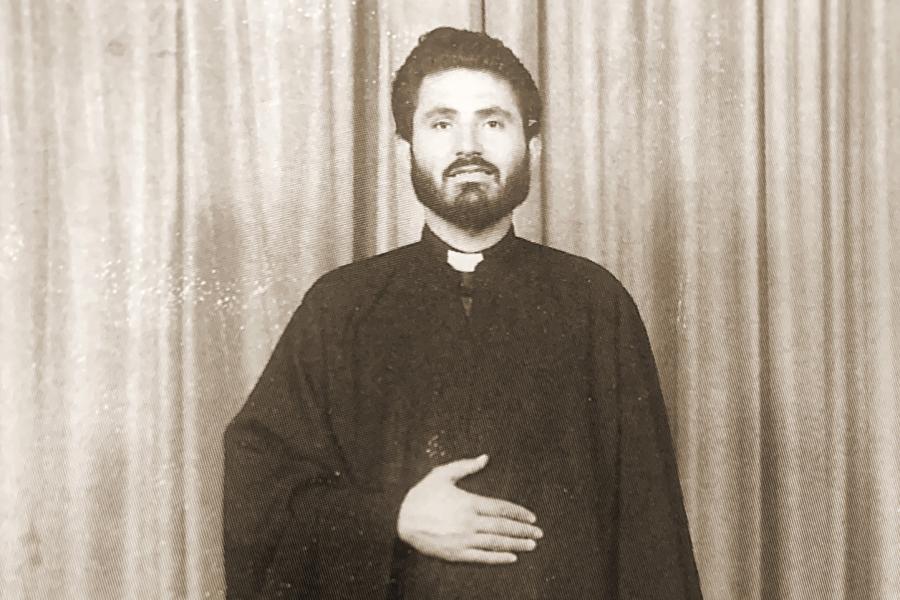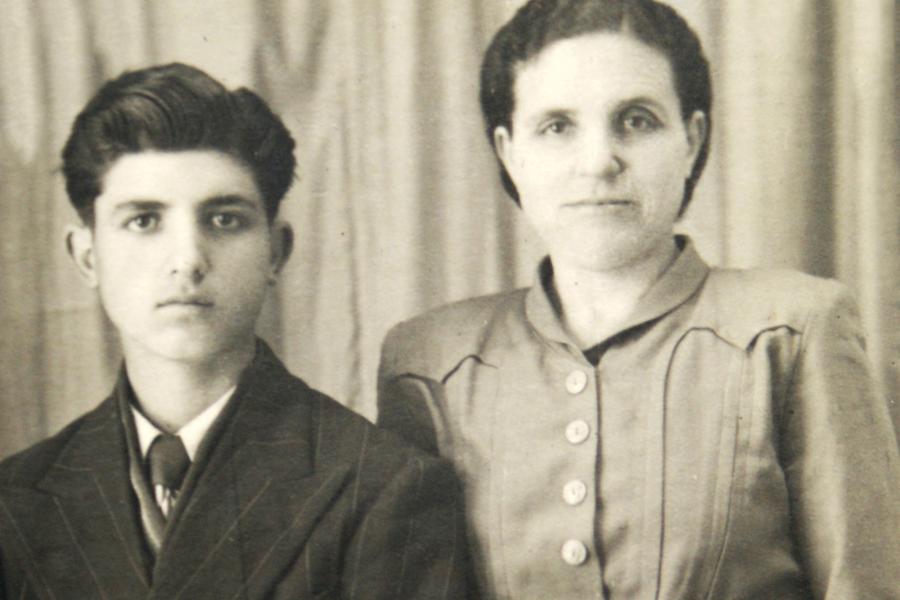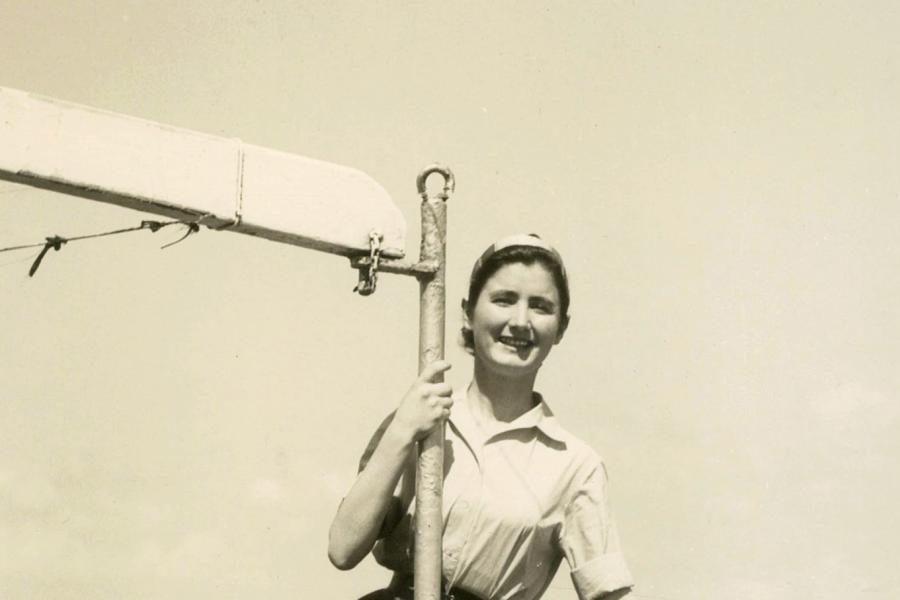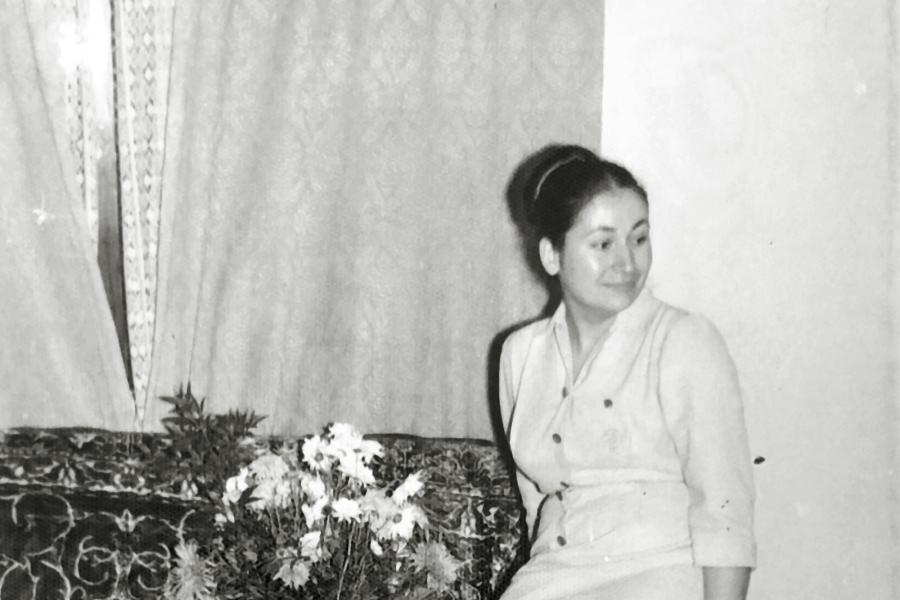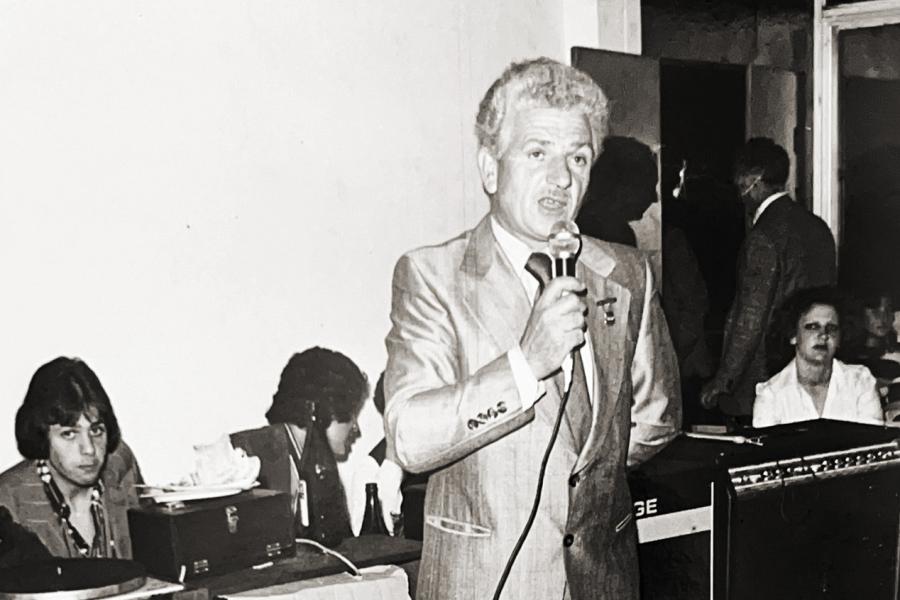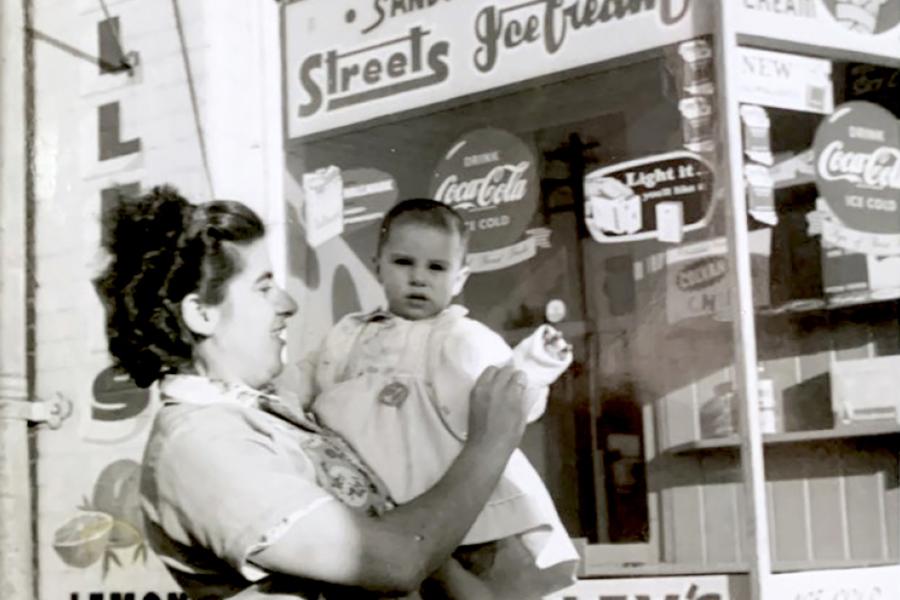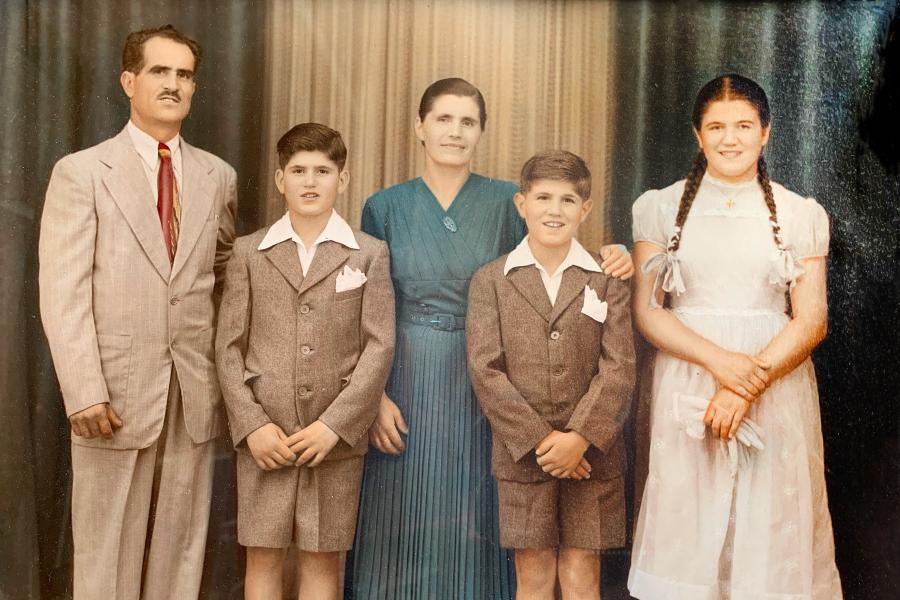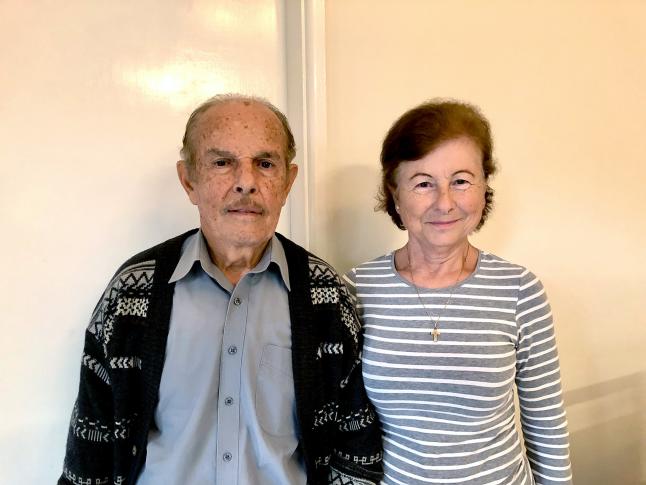

Speaker background
George Hatzithavoris was born into a farming family in the town of Velvendo in Kozani, Greece in 1943. After completing his compulsory military service at the age of 20, he travelled to Australia on the Patris, arriving in 1968. His first job was as a concreter for a pool company and then worked in different small food businesses, before buying his own. He met his wife Patricia in 1972, and the two lived in shared accommodation in Paddington until they bought their house in Willoughby. They had two children, Sophia and Kosta. In 1986, the family moved to Greece, but after a few months, realised life in Australia was more favourable.
Interview summary
George describes his early life in Velvendo working with his father and his experiences in compulsory military service. He talks about owning and working in businesses in Sydney’s Eastern and Northern suburbs. He describes holidays to Greece and an attempt to move back there in 1986. He talks about the family’s social life, attending church, soccer games, and outings with the Velvendo Society, as well as the clubs he and Patricia went to every Saturday when their children were older.
Interview highlights
highlight
George describes his experience working at a hamburger shop on Oxford Street, Woollahra.
George: From then on, in Woollahra, the shop that I worked in upstairs had two bedrooms. And we lived upstairs. […] Downstairs work and upstairs sleep.
Interviewer: And tell me a bit about this shop in Woollahra.
George: This shop opened at 10 o'clock, and closed at 12:30 am Monday, Tuesday, Wednesday, Thursday at 1 am, Friday, Saturday at 2 o'clock, In the morning.
Patricia: The next day.
Interviewer: What kind of shop was it?
George: Hamburger shop, they called it then, that had tables.
Patricia: Steaks.
George: It had tables, food, rump steak, t-bone steak, mix grills, hamburger steak, bacon and eggs, various foods. Hamburger steaks, sandwiches. Drinks, cigarettes, chocolates, ice-creams, coffee, soups—we did soups, too—cans, we had the canned soup and we put it in the steamer there, and we did it. It was soup, it was ready.
Interviewer: And what did you do? Did you cook, serve, wash, do a bit of everything?
George: Me? Ah, in the beginning you have to learn. You can’t work on the grill. I washed the dishes. Peeled onions, peeled potatoes, because for potatoes then we didn’t have that machine to clean the potatoes. […] Slowly, slowly, then I would clean up and started on the grill taking orders. One hamburger, two hamburgers. They put me there so I could also get used to it. And I did. Initially there was a little work, and then, I was full time on the grill. To be cooking steaks there, things were confusing. It was a lot. It wasn’t one or two things. Someone would order 4-5 hamburgers, and they’re not all the same. Some had bacon, others without sauce, others with tomato, another would be a steak sandwich. Some want it medium done. Others, well-done, 2 eggs. Another with fried tomato, fried onions—confusing stuff. Lots of work!
Timecode 16:06 - 18:31
highlight
George describes the purchase of the fish and chips shop he ran for six and a half years, and the family’s move from their house in Willoughby to live on top of the shop.
George: ‘I’m interested,’ I say. I went to look at it. Upstairs it had two bedrooms, kitchen. Really bad. In really bad condition. They lived there first, he and his brother, two families, but then they bought a house and they had left, it was empty. In there it was a mess.
Patricia: Neglected.
George: Mouse droppings, this, that, anyway. I went and saw it, I said ‘What do you make?’ He says ‘$1,400 a week.’ Six days, it closed on Sunday. $1,400. ‘What rent do you have?’ He says, ‘$160’. Back then, $160 was a lot, to make only $1,400 was over 10% of your earnings on rent. It was substantial. And the shop, this one and not just this one, the other four or five a bit further, were to be demolished and they didn’t lease them. They only gave 3 years. And then if they demolished them, you were out. I knew this. $1,400. ‘And how much do you want?’ He says ‘$6,000.’ I was waiting for him to say 10, about 10. I thought 6,000, I’ll take it. But I didn’t want to show that I was excited, so I said, ‘You don’t mind if I ask my wife?’ ‘No!’ ‘My wife will want to see it too.’ He says ‘OK.’ I went home. […] So, we went to see it. We agreed. […] We fixed the floors downstairs everything new. I painted it all. Anyway, and we fixed it up and my wife put new curtains on the windows, which I didn’t have. And we fixed it up and made it pretty nice, compared to how it was. And we got the shop and …
Patricia: And we lived there.
George: Ah, we rented our house. This one. $120 a week. So, the shop came down to, from $160, to $40 a week in rent. Anyway. And we earned more with the shop. Every week it went up. $100, $150, $200, 100, 30, 50 more and more and more. From $1,400, we got it to make $3,800, almost $4,000, in 6 days. Those days that was good money.
Timecode 32:22 - 35:06

